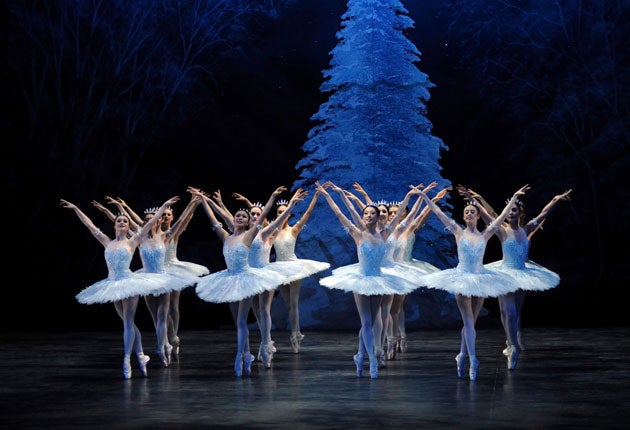Ballet is dying, warns Sadler's Wells chief

Ballet is in crisis, with fresh talent and ideas struggling to break through and the major companies obsessed with 200-year-old productions at the expense of new work, according to the head of Sadler's Wells, in remarks sure to cause a sharp intake of breath backstage at his more traditional rivals.
Much of the large ballet companies' output lacks variety, according to the Sadler's Wells chief executive Alistair Spalding, who champions new work.
"I'm not saying they don't get broad audiences, but it is often one dimensional," said Mr Spalding.
"There are exceptions but that is essentially the bulk of it, it is 19th century. If there isn't some kind of attention paid to that it is going to end up winding down. It does need new impetus. There is the sense that it does need to be reinvigorated again."
The problem is nothing to do with the recent funding cuts, according to Jennifer Homans, author of Apollo's Angels: A History of Ballet, which prompted international debate last year after she argued that ballet was dying – although the emptying coffers will make things much more difficult.
"Funding is not the problem, it is an artistic problem and money will not solve that," said Ms Homans. "Alistair is right. We are at a conservative moment in ballet, and dancers need to feel like they are doing new work. Unfortunately, for the most part, the new work is not living up to the old work."
She added: "The crisis in ballet is not a British crisis, it is a general crisis."
Mr Spalding acknowledged that it was difficult for the three biggest ballet companies – the Royal Ballet, English National Ballet and the Birmingham Royal Ballet – to pioneer the unexpected "because new things are difficult to sell; the audience aren't expecting it". He added: "I think Sadler's Wells has tried to democratise the art form and its success is reflected in the diversity of people that come."
The argument comes days after the big three, and Northern Ballet, were told of a 15 per cent cut in regular Arts Council England (ACE) funding from 2012.
While the Royal Ballet's Alice's Adventures in Wonderland was welcomed by critics earlier this year, it was the company's first all-new, full-length work in 16 years. Over the past year the English National Ballet's The Nutcracker, and Birmingham Royal Ballet's Cinderella, have been well-received, if rare productions of new full-length ballets, but have used existing scores.
Over the next 12 months, the English National Ballet and Birmingham Royal Ballet will each receive £6.4m and £7.6m of ACE funding. The Royal Opera House will receive £26.3m, from which it will fund the Royal Ballet. Mr Spalding also sits on the Arts Council's national council, which oversaw last week's major funding decisions, but refused to discuss individual funding cases.
Ismene Brown, the dance critic, and co-founder of the arts website The Arts Desk, said: "The major ballet companies do not now invest in new work to the degree they should, and the cuts will certainly make that worse."
A spokesman for the English National Ballet insisted that the company has "a very strong output which has already seen the Emerging Dancer Awards take place at the Southbank Centre". A spokesman for the Royal Ballet highlighted the role of its resident choreographer Wayne McGregor in nurturing new choreographers and the company's commitment to putting on new shorter works.
Subscribe to Independent Premium to bookmark this article
Want to bookmark your favourite articles and stories to read or reference later? Start your Independent Premium subscription today.

Join our commenting forum
Join thought-provoking conversations, follow other Independent readers and see their replies